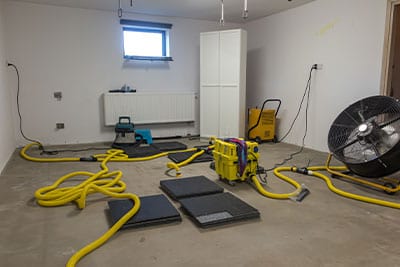Flood Preparation and Flood Insurance
 Flooding causes more property damage than any other weather related event and occurs in all 50 states. You should understand potential flood vulnerabilities you may have at home. The Red Cross or the local planning and zoning department can help you if you are unsure.
Flooding causes more property damage than any other weather related event and occurs in all 50 states. You should understand potential flood vulnerabilities you may have at home. The Red Cross or the local planning and zoning department can help you if you are unsure.
If it is raining hard or, if it has been raining over a long period of time you should check for increased flood possibilities online, by listening to the radio or tuning in weather updates on TV.
There are several types of flood. Coastal flood and river flood are a little more predictable and develop of a period of hours or days. A flash flood can appear very suddenly. Local authorities may issue Flash Flood Watches or Flash Flood Warnings or regular Flood Watches or Flood Warnings
Before a Flood Threat:
- If you are in a flood prone area you should consider flood insurance. Homeowner insurance does not include coverage for flood. That coverage has to be obtained as a separate policy.
- Prepare or update a Flood Disaster Supply Kit and Personal Evacuation Plan.
During a Flood Watch:
- Move your furniture and valuables to higher floors in your house. If you have a one story house then move these items on top of counters and tables.
- Make sure your vehicles have full fuel tanks and be prepared to leave should an evacuation order be issued.
- Monitor changes in flood status by listening to the radio or TV.
During a Flood Warning:
- Pay close attention to updates by listening to radio or TV. Be prepared to evacuate.
- If the Flood Warning is a Flash Flood Warning, move to higher ground immediately. Flash floods can develop into raging torrents in a matter of minutes so you may have little time to act. Move away from rivers, creeks, streams and drainage areas.
During a Flood:
- Do not drive on flooded roadways or across flooded bridges. 80% of people who perish in a flood die trying to drive where they shouldn’t. Six inches of fast moving water will move a car or knock a person down.
- Leave your vehicle, if it stalls, and seek higher ground.
- If flooding occurs at night, be especially cautious. Warning signs are more difficult to recognize in the absence of light; light reflected off smoother water surface can look just like wet pavement.
- Get to the highest point you can without wading through dangerous flood waters.
- If you use a watercraft, proceed slowly to you are less prone to upset from striking debris; also, wakes from fast moving watercraft can add to property damage.
After a Flood:
- Check for structural damage to your home before reentering. If the damage appears significant, do not enter the home until you can take precautions against collapse.
- Inspect your water lines and other plumbing. If you think there has been any damage, avoid using toilets.
- Do not drink or wash in tap water water until local authorities say it is safe to do so. Boil all water in the meantime.
- Avoid electric appliances or lines if water has intruded into your home or basement.
- Continue to monitor radio and TV for updates regarding water safety, transportation and other important information.
- Throw away all food that has come in contact with flood water, even food in cans or other packaging.
- Avoid using candles, kerosene lamps or other open flame sources for heat or light. Candles cause more fires after a disaster than any other source. If you must use a candle or open flame lamp take extreme care to keep pets, children and combustibles away from the flame.
- If you smell or hear the hiss of leaking gas, leave the house. If you can, turn off the gas line at the cut off valve outside your home. Call the utility company from your cell or from another location.
- Take photos of any damaged items. Place them outside if they cannot be salvaged but try to avoid discarding them until they have been looked at by an insurance adjuster.
Resources:
For any insurance questions, call or contact Meixell – Diehl Insurance today.
